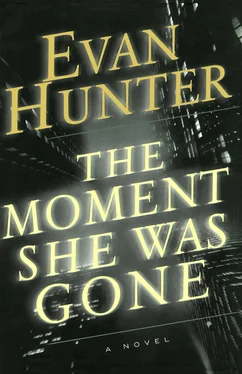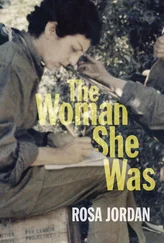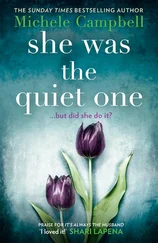“Maybe we should call that woman, after all,” she says.
For a moment, I’m not sure who she means.
“Woman?” I say.
“The shrink you saw last week.”
“Oh.”
“Whatever her name was. Was she any good, Andrew?”
“Lang. Yes, she seemed okay.”
“Only okay?”
“She seemed fine, Mom.”
“Did Annie mention what they talked about?”
“I was there, Mom. I know what they talked about.”
“What do you mean, you were there? You mean in the room with them?”
“Yes, Mom. Annie wanted me to come in.”
“And she let you? The shrink?”
“Her name is Lang, Mom, Dr. Lang. She’s a respected psychiatrist at Mount...”
“And she let you hear what a patient was saying?”
“I told you, Annie wanted me to come in.”
“That’s highly unusual, isn’t it?”
“I don’t know if it’s unusual or not.”
“Well, it seems highly unusual to me.”
“So be it.”
“What’s that supposed to mean, so be it?”
“It means if you think it was unusual, then you think it was unusual. Apparently, Dr. Lang didn’t think it was so unusual because she permitted it.”
My mother nods.
Her nods mean either “You are a jackass, son,” or “There’s no use even talking to you.” In this instance, her nod probably means both.
“So what’d your sister tell her?”
“She said she was molested when she was a kid.”
“Nonsense.”
“When she was eleven years old.”
“No.”
“She said Mr. Alvarez put his hand under her skirt...”
“Who on earth is Mr... Oh. The super? When we were living on Seventy-second Street? Annie never said any such thing! You’re making this up.”
“Stuck his finger in her, she says. She wet her pants. She peed on his hand.”
“Really, Andrew.”
“Mother, it’s what she told Dr. Lang.”
“Dr. Lang! ” she says.
“She also said she heard Mr. Alvarez’s voice coming from the television set.”
“Well,” my mother says. “Everyone hears voices.”
“What does that mean?”
“I’m sure Annie didn’t mean actually hearing his voice coming from the television. Or maybe she was just listening to thoughts inside her head. Everyone has internal thoughts, Andrew. You teach English, haven’t you ever heard of interior monologues?”
“Yes, Mother, I...”
“Ulysses, remember, Professor? Finnegans Wake?”
“I’m merely repeating what Annie...”
“Or didn’t you ever study James Joyce?”
Her sarcasm is biting. I am suddenly five years old again. My father is gone. He never answered my letter, I have no father. I keep crying all the time. My mother keeps telling me to stop crying all the time, I can’t seem to stop crying. Aaron rabbit-punches me every time he passes me in the apartment. The apartment seems so huge with my father gone. Whenever I start crying, Annie begins crying, too. We are a gang, my sister and I.
My mother is pacing now.
“What else did Annie tell this Lang woman?” she asks.
This Lang Woman. Some sort of devious mid-Victorian figure with high hair and a corseted waist and a plumed hat, stalking drawing rooms and salons where she smiles secretly and eavesdrops on the confidences of young Tantric initiates. With those three words, my mother washes down the drain four years of college and four years of medical school and four years of psychiatric residency, leaving “This Lang Woman” standing exposed for the charlatan and quack she most certainly is.
“She told her all about Sicily.”
“All about Sicily?”
“Well, almost everything, Mother.”
“Told her what that doctor...”
“Said they all thought she was crazy, yes.”
She whirls on me suddenly. Her eyes are blazing the way they had that night long ago, when she called my sister a little pisspants. I expect another bowl of mashed potatoes on my head. I almost cower from her.
“And you let her say all this?”
“Mom, it was her nickel.”
“Her nickel? My nickel, you mean, don’t you?”
“Annie was there to talk. What good would it have done if...”
“What were you thinking? ” she yells. “Did you suddenly lose your...?”
She cuts herself short. I suspect she was about to suggest that perhaps I’d suddenly lost my mind, too, but of course this observation would have been at odds with what she believes, or disbelieves, to be the truth about Annie. She begins pacing again, stalking the room like a lynx, all green-eyed and auburn-haired with a little help from a rinse bottled by my brother’s firm. I cannot tell whether she is furious or merely desperate.
“Mom,” I say, “she’s gone again, okay?”
My mother nods.
“Let’s just try to find her, okay?”
She nods again.
“Mom?”
She keeps nodding. I can’t even imagine what’s going on inside her head. She just keeps pacing silently, nodding.
“Okay, Mom?”
“Yes,” she says at last. “Okay.”
And nods again.
My father used to smoke incessantly.
I loved to watch him paint.
I have seen many movies about painters, some famous, some striving to become famous, and none of them have ever seemed convincing to me. When my father painted, there was nothing but him and the canvas. He was utterly alone with the canvas. I would come home from school and walk into the spare bedroom of our apartment, on the north side, where the light was good, and he would be standing at the easel wearing jeans and sandals and a blue smock like the ones French street cleaners wear, and which I think he actually bought in Paris, I know he had dozens of them, all of them paint-spattered. The smocks themselves looked like one of his canvases.
We were still living in the building on Seventy-second Street at the time — yes, the one where Mr. Alvarez was super — and he would always ask me when I came home from school, “Is your father still painting?” and I would say, “Yes, he is, Mr. Alvarez,” because what else would my father be doing but painting? I sometimes thought he painted day and night. I sometimes thought he never slept. All he did was paint and smoke his little Brazilian cigars, which he called in a thick fake Spanish accent, “gringo steenkers,” blowing out clouds of smoke and grinning like one of the banditos in Treasure of the Sierra Madre. He was never without one of those little cigars in his mouth. Never. He would lean in close to the canvas, as if scrutinizing each dollop of paint he applied with putty knife or brush or even thumb, squinting at every new stroke, puffing on the cigar, backing away, dipping into the riot of color on the enamel tray he used as a palette, lunging at the canvas again, puffing, painting. I loved to watch him paint.
He was a large man, my father — I talk about him as if he’s dead, when I know he’s not — and he overwhelmed the easel and the canvas and the tiny room in which he was permitted to work. But even later, when he was recognized and rich and had built for himself the huge studio in Connecticut, he triumphed over this larger space with the sheer bulk of his size and the energy of his attack upon each oversized canvas. He always painted big. Fair-haired and pale-eyed, he slashed at the canvas like a Viking invader hacking a hapless black-Irish peasant to bits, trailing a wide red gash here, exploding a burst of white there, dipping his thumb into burnt umber or cobalt blue, poking it at the canvas as if gouging out an eye. The flaxen hair and blue eyes in fact bespoke of fierce Norwegian ancestry, not for nothing had Norsemen once sailed up the river Shannon. The gentleness of his spirit murmured of something quite else. Soft green hills and drifting mist. Smooth brown whiskey. A lullaby on a moonless night. A keening graveside woman. My father’s soul was Irish to the core.
Читать дальше












